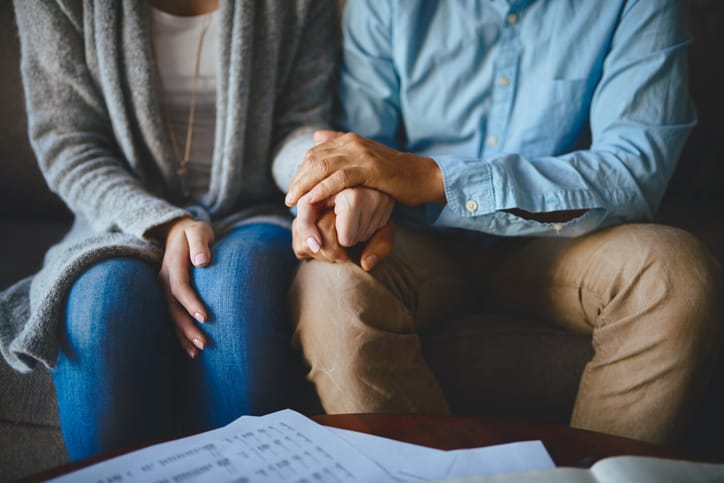
Dealing with Grief? Consider these 5 Tips
Whether it’s the loss of a loved one, a relationship, a pet or a job, the feelings that follow a major loss can be overwhelming. The most common and natural response to loss is to grieve. Every loss is different, which means that every grieving process is different, but with the proper support and guidance, grief is only temporary.
The Stages of Grief
When most people think of grief, they might think of the five stages–denial, anger, bargaining, depression, and acceptance. These stages are common scenarios of what someone suffering a loss might experience, but not everyone will experience all the stages or in this exact order. Some of us will intensely feel denial and depression, while others might move swiftly through to acceptance and peace. Emotions are unique to the individual grieving and shouldn’t necessarily be named or analyzed too much in an effort to avoid feeling like you’re not grieving the “correct” way. Allowing yourself to feel and grieve in your own way is acceptable and encouraged.
Grief vs. Depression
To protect yourself from unsafe or unhealthy symptoms, It’s important to understand the difference between grief and depression. Because they have similar symptoms, it may be hard to distinguish the two. One major distinguishing factor of grief is that it is typically short-lived. You might experience the symptoms of grief for a few months and then slowly begin to feel like yourself again. Though it’s normal to have those feelings of sorrow return on the birthday of the deceased or if you happen upon a memento of the deceased. In general, though, grief does go away.
Depression, on the other hand, is more persistent and usually requires more rigorous treatment, and sometimes medication, in order for it to subside. The best way to determine if you’re suffering from depression or the normal symptoms of grief is to talk to a doctor about what you’re feeling. Confiding in a friend can also be helpful as they can assist in finding the right resources for you and act as a guiding light when you need it most.
Tips for Dealing with Grief
Imagine grief as if you’re going through a dark tunnel, but you can see a tiny speck of light in the distance. Crying, loss of appetite, overwhelming sadness, and some weight loss are all normal symptoms of grief. These tips will help you navigate through the tunnel and prepare you for feeling like yourself again.
1. Know the signs and symptoms of grief – Educating yourself on the signs and symptoms of grief will give you some reassurance that what you’re feeling is normal. This is especially helpful in determining if or when you might need to seek guidance from a doctor.
2. Acknowledge your pain by talking about it with a trusted friend – It’s common to want to internalize feelings of sadness, but talking about what you’re going through with a friend or family member can help you heal and move along in your grieving process.
3. Do the things that make you feel like yourself – Taking time off from work can be helpful when grieving the loss of a loved one. However, once you’re ready, getting back to your routine and doing the things you love will give you a sense of normalcy that’s important for your healing process.
4. Do what you can to take care of yourself – Do your best not to let yourself go. Get some sun, get some exercise, brush your teeth and eat nourishing food. Your body and mind need to be cared for as your heart is healing.
5. Allow yourself time to heal – Giving yourself time and grace, especially during unexpected emotions or triggers, is the best gift you can give yourself when grieving. Don’t be hard on yourself and don’t surround yourself with people who are. Move through the days with grace and be gentle and kind to yourself as you heal.
The Road Ahead
As you come out on the other side of grief feeling like yourself again, preparing for life with the absence of a loved one might feel daunting. Training yourself to reframe triggers into positive celebrations will help you avoid falling back into grief. For example, on your loved one’s birthday, rather than moping around, think about how you can honor and celebrate that person in a small, but positive way. Sometimes making a big deal about sadness triggers can not only affect your mood but others as well.
Surrounding yourself with positivity and things you love is your best bet for the road ahead. Approaching each day with a grateful heart and a positive attitude will make a world of difference in your life after loss. You’ll not only feel better, but you’ll attract the positive energy that you put out and those around you will feel better too.

The Santé team provides a comprehensive and compassionate range of services, including end of life care. If you’re interested in learning more about comfort care or visiting one of our care centers, call us at (480) 563-2402.



